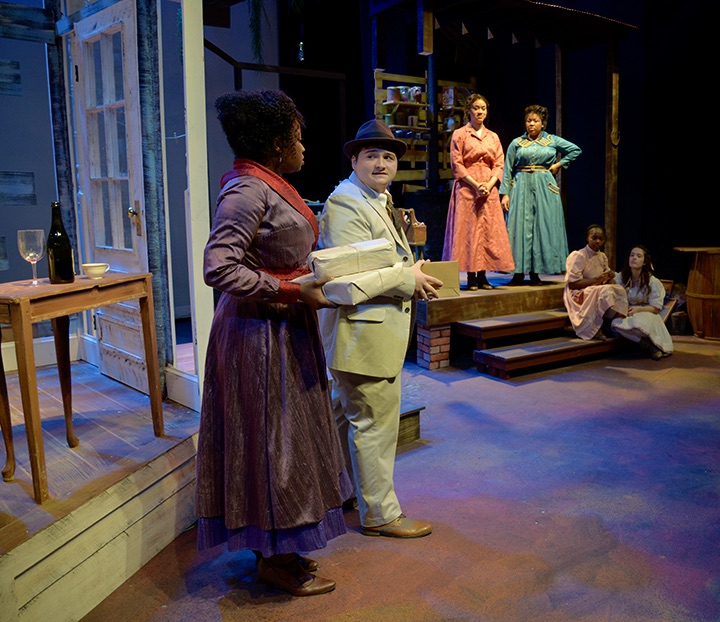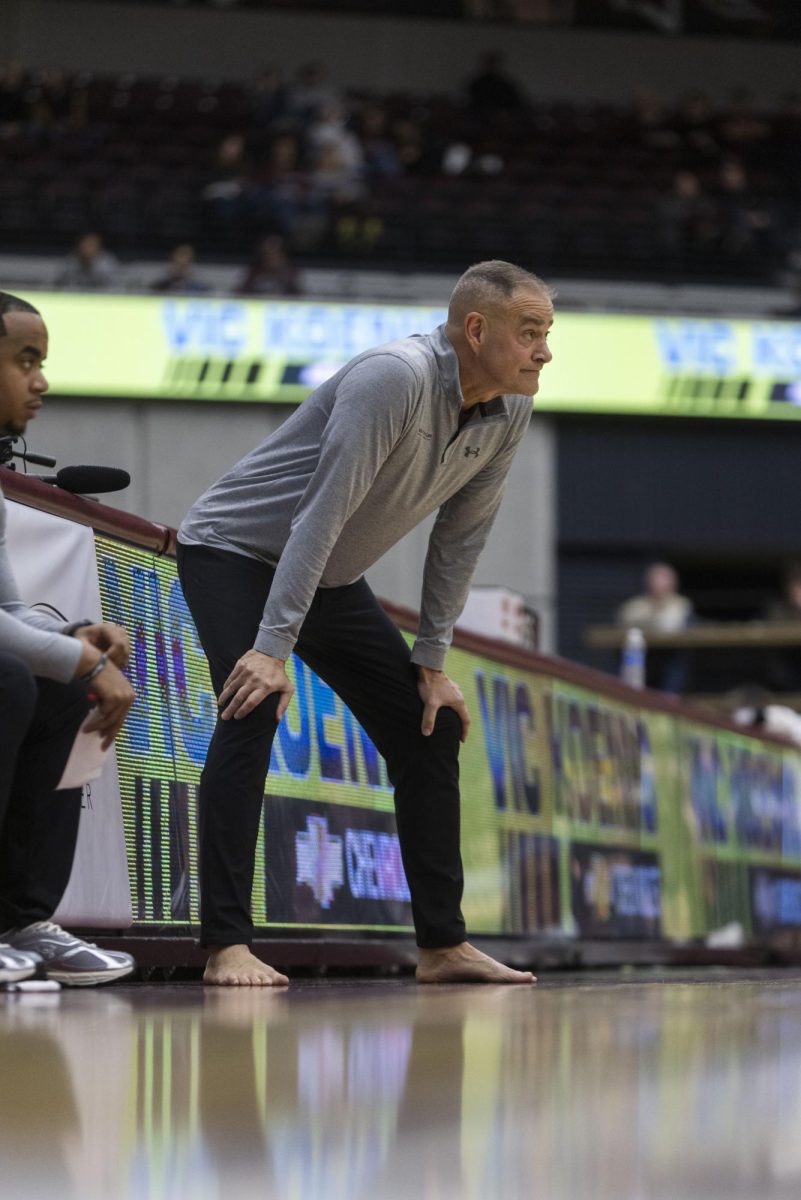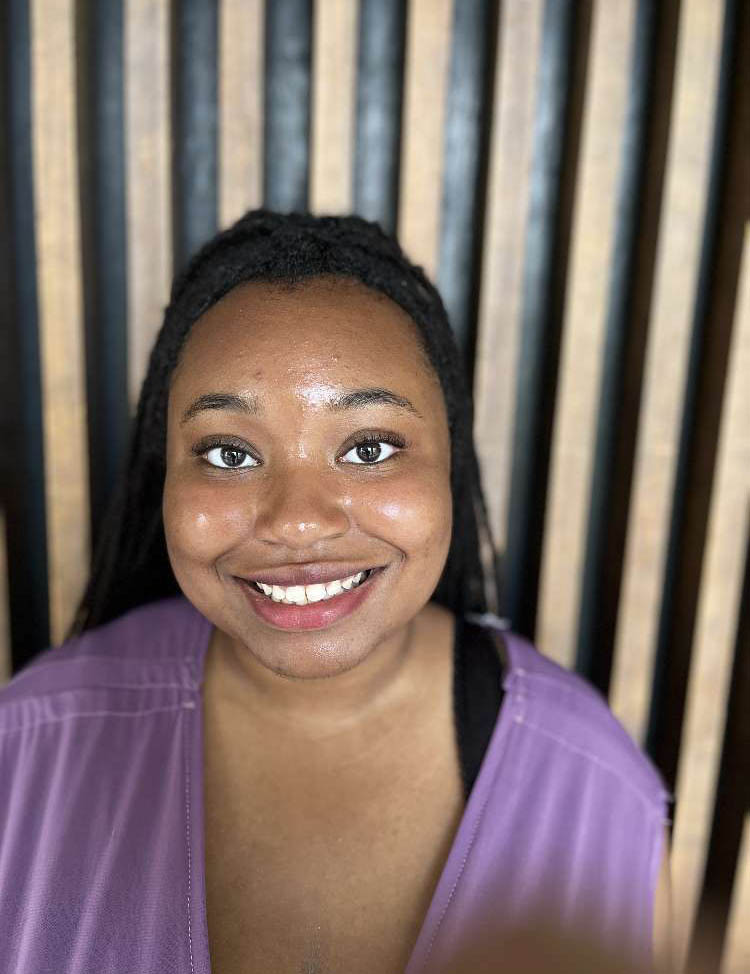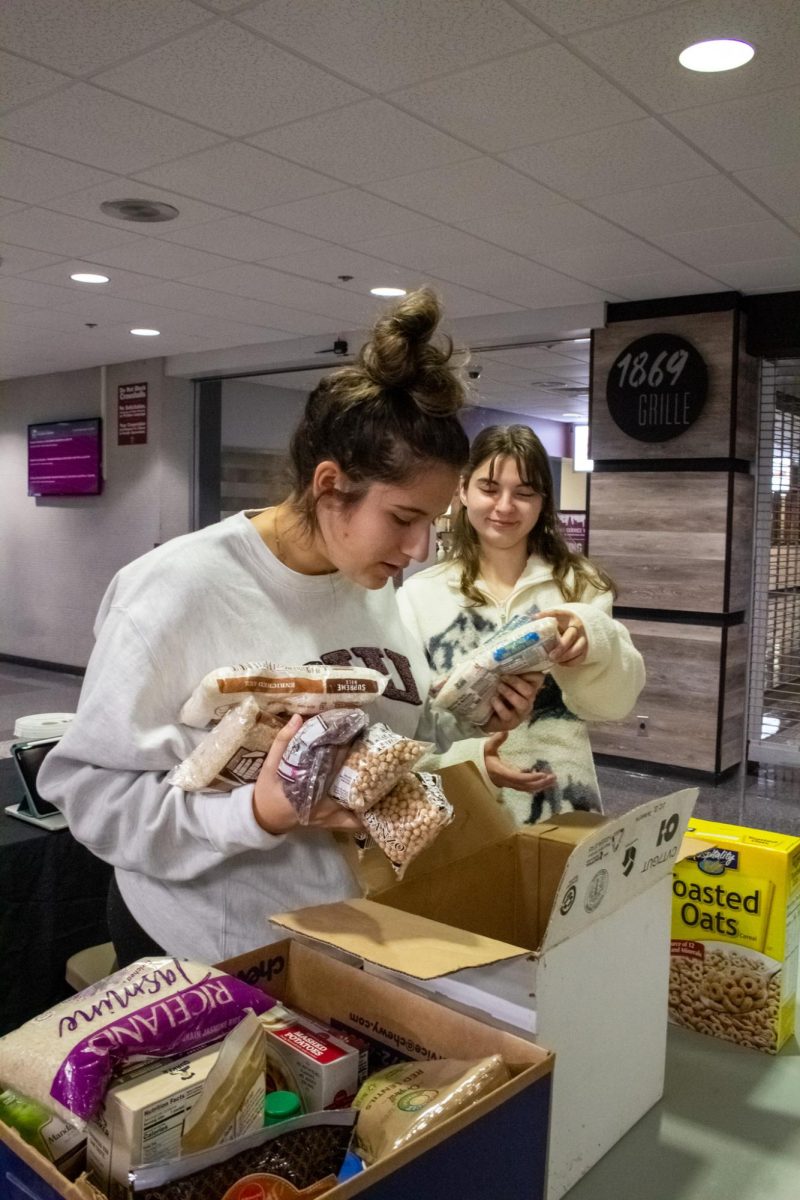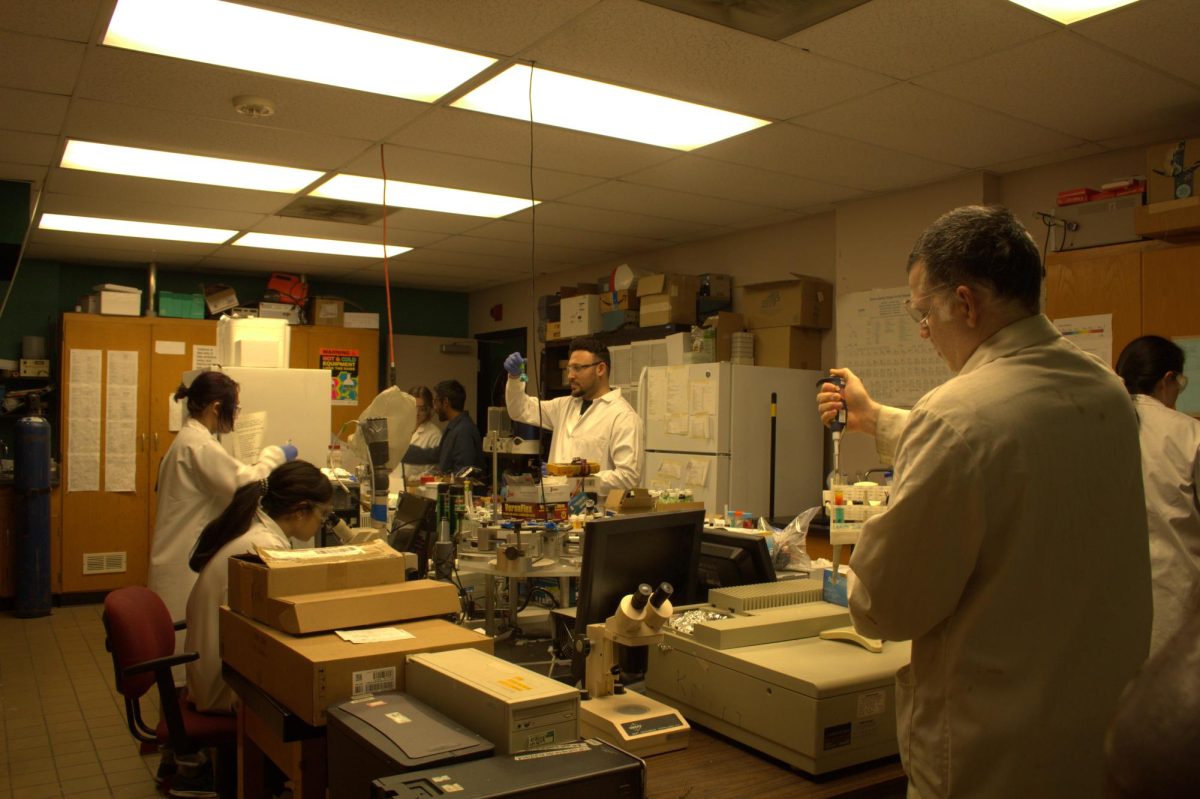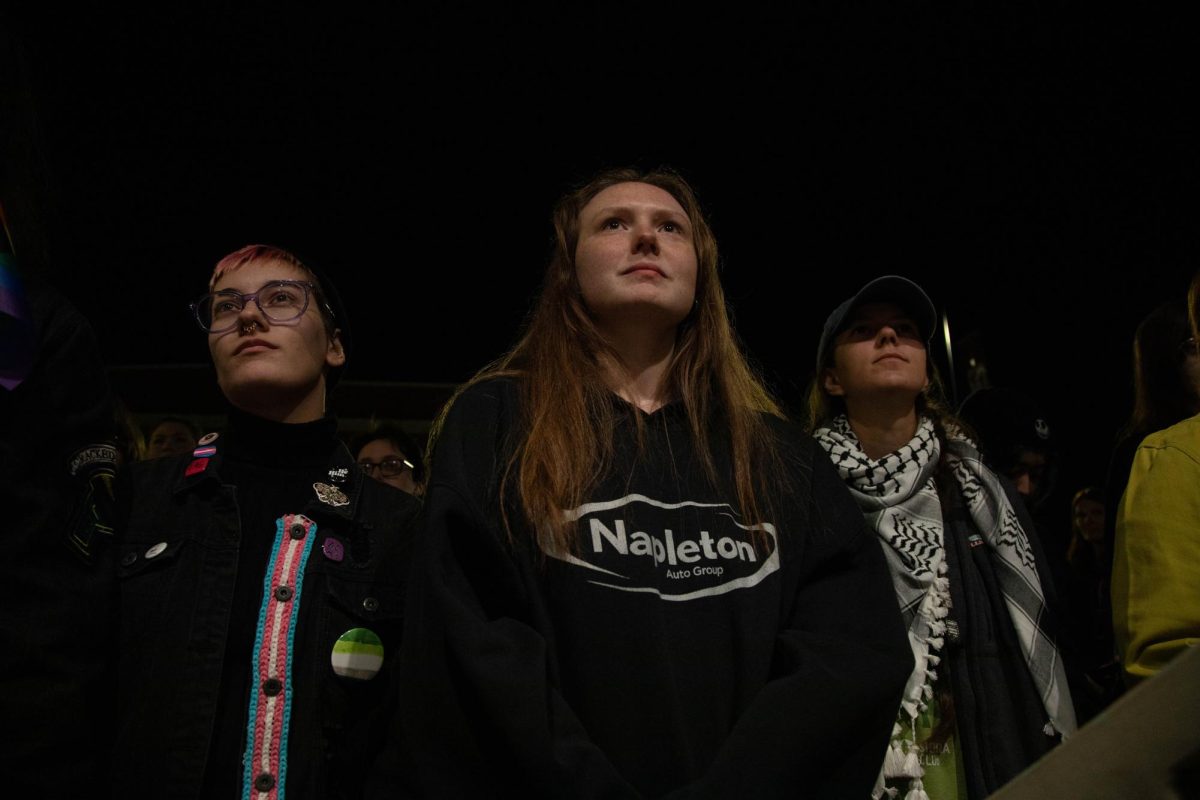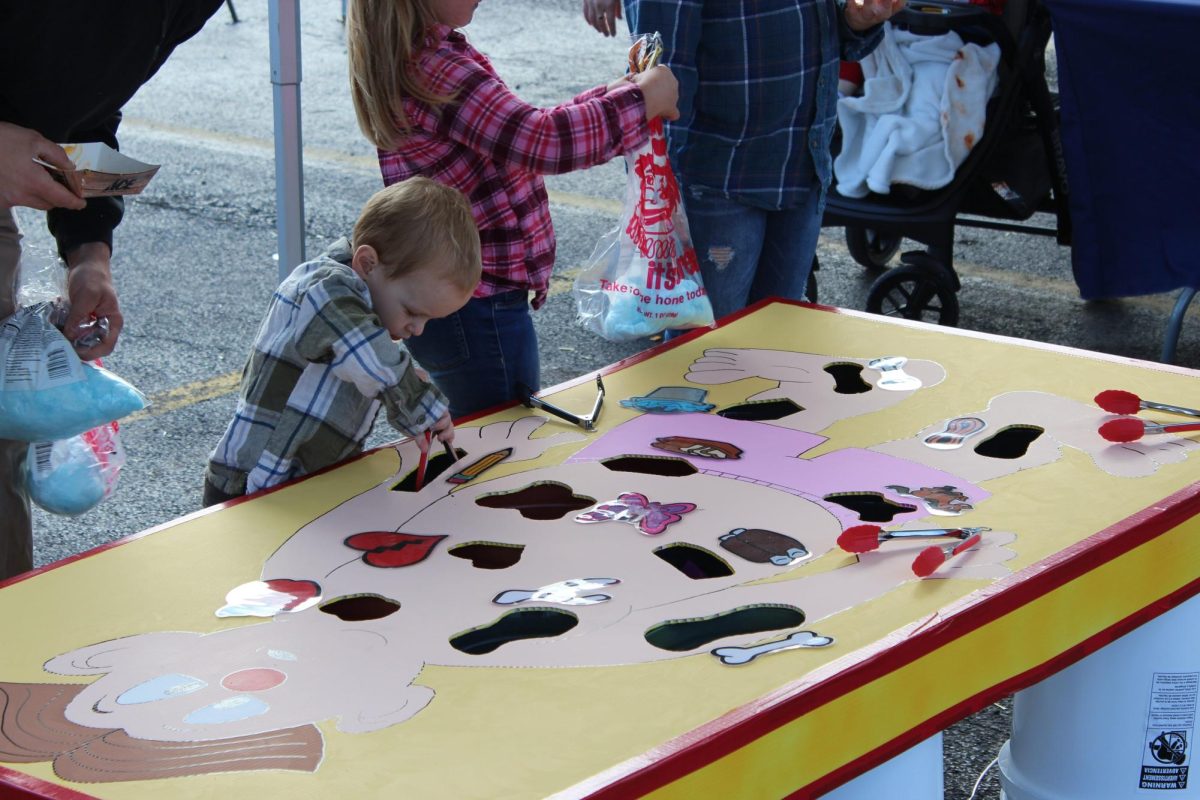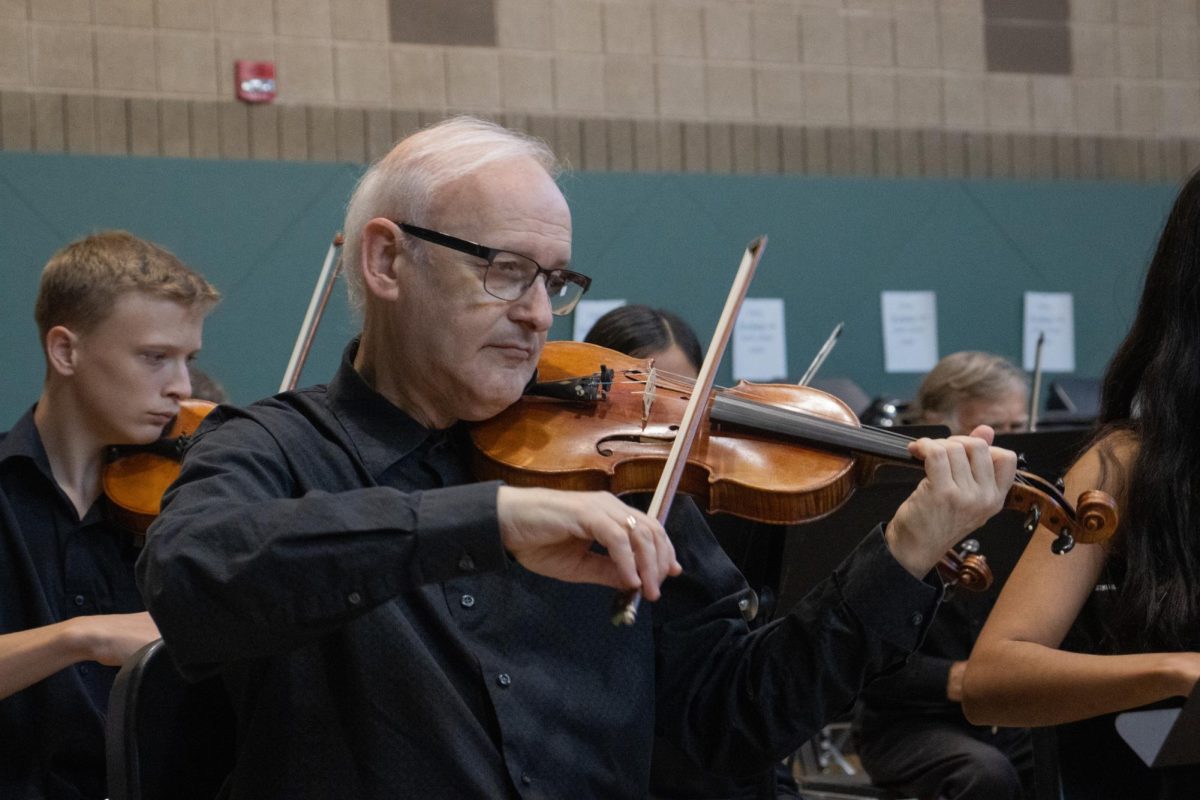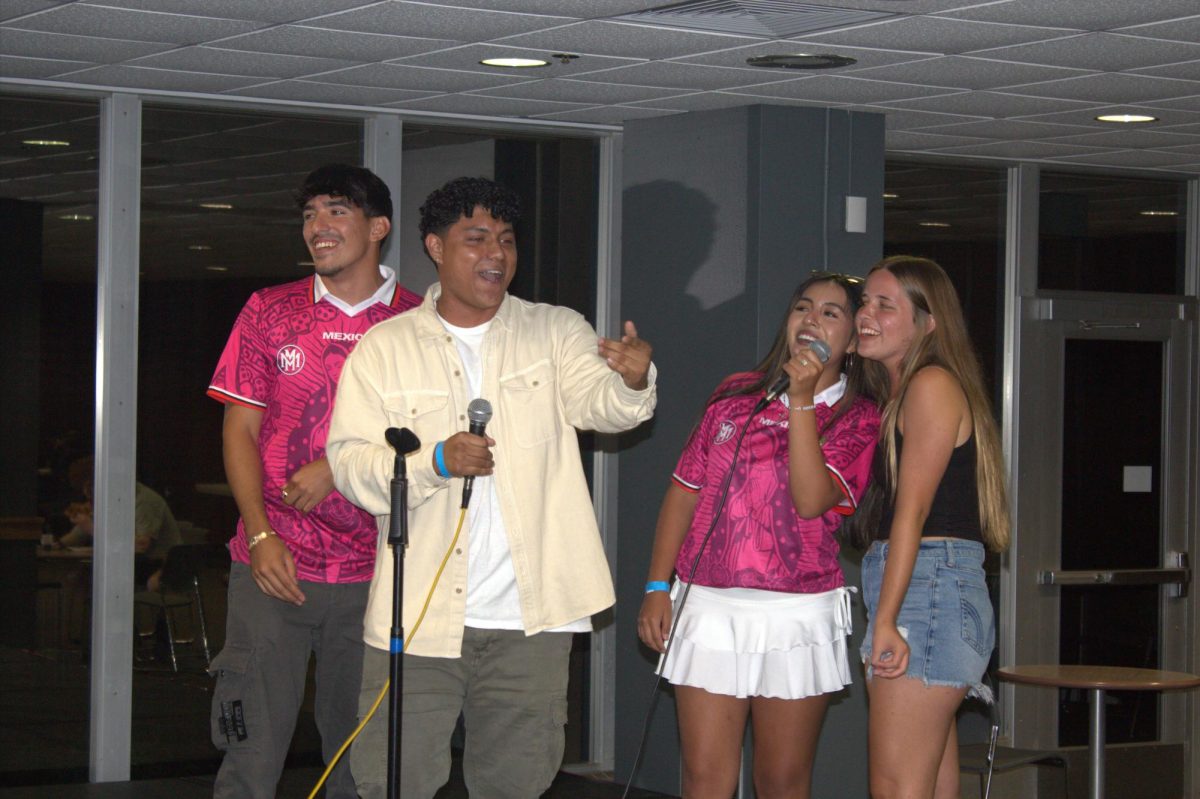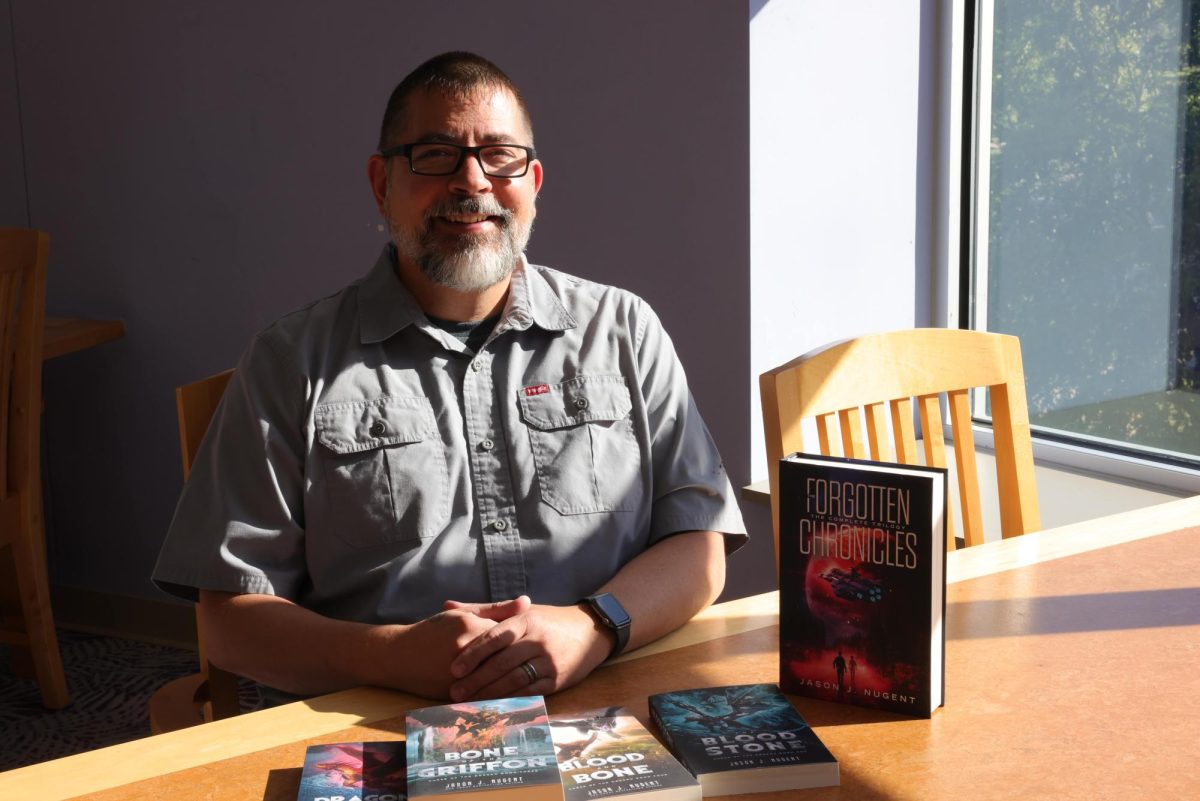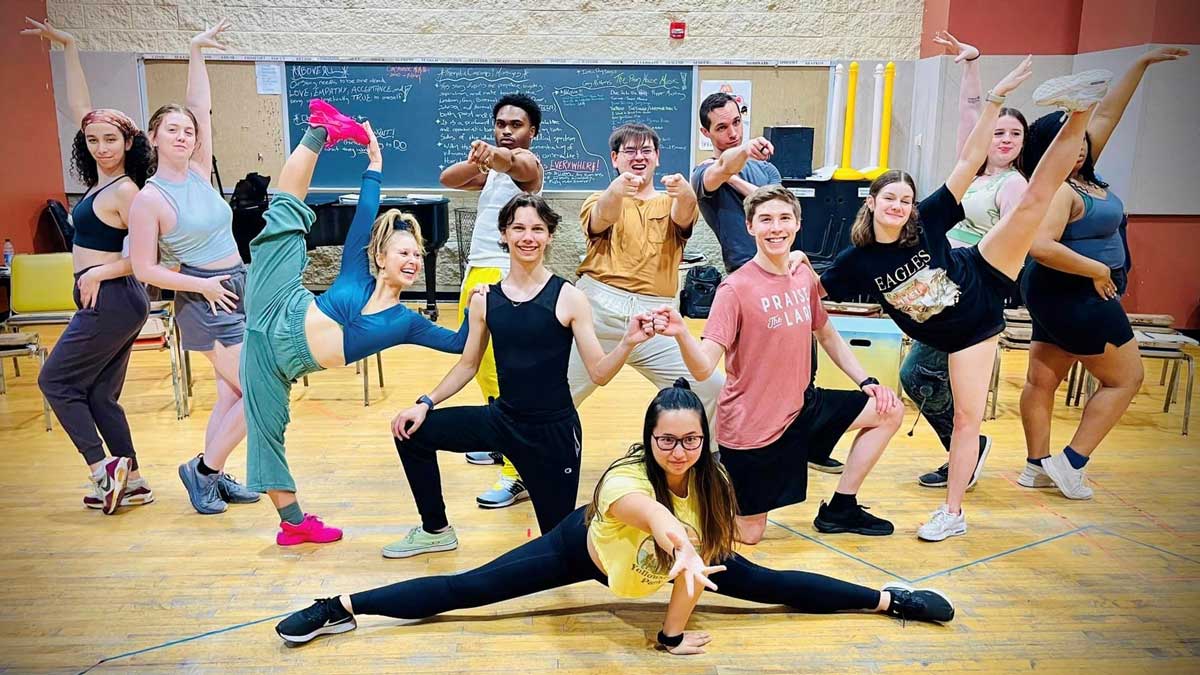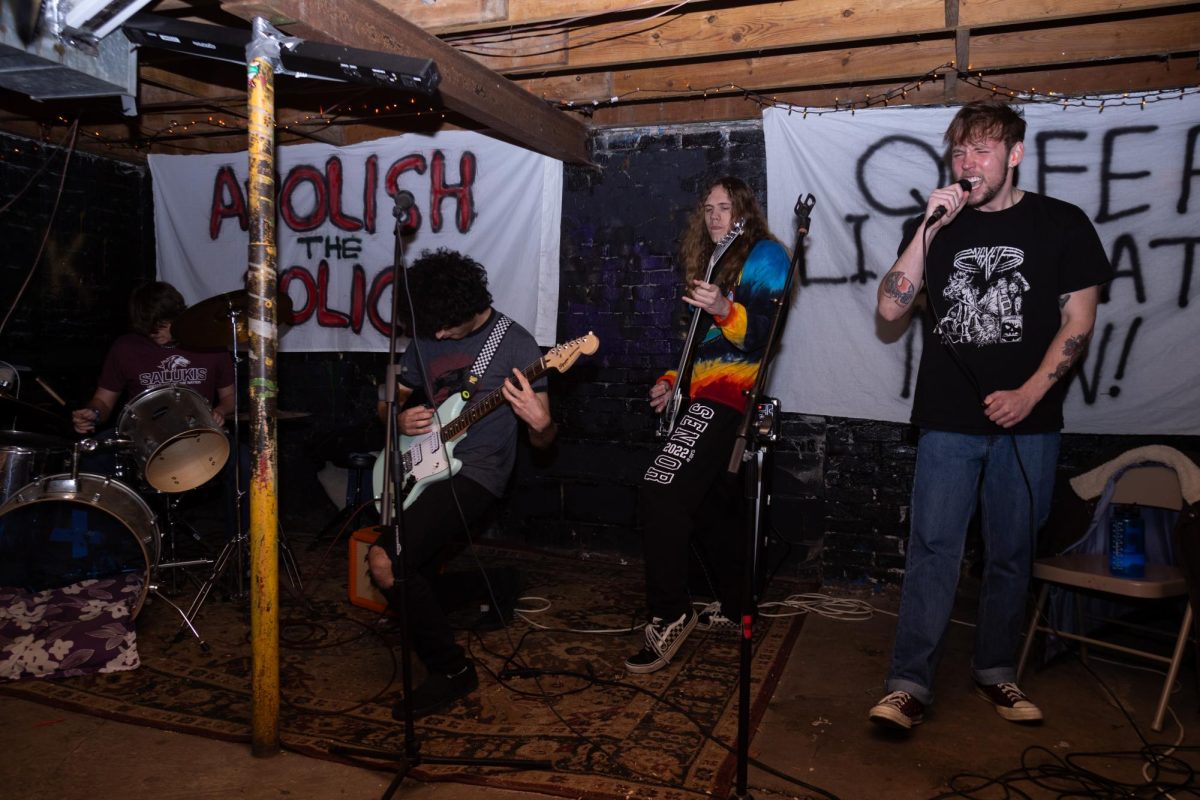The Southern Illinois University School of Theatre and Dance is holding its final production of the semester: Alice Childress’ “Wedding Band: A Love-Hate Story in Black and White.”
The two-act play, which explores themes such as racism, loneliness, social injustice and community, was written in 1962 and first performed in 1966 at the University of Michigan. According to PBS THIRTEEN, the play was optioned for Broadway, which would have made Childress the first Black woman to have a play in the renowned theater district.
However, after she refused “to compromise in order to make white audiences more comfortable,” “Wedding Band” did not receive a wider audience until 1972, when it was performed at the New York Shakespeare Festival. It received a major New York revival last May, 50 years later, by Theatre for a New Audience at Polonsky Shakespeare Center in Brooklyn.
Advertisement
The play is making its southern Illinois debut Thursday.
“We have a lot of opportunity to engage in path-making without a lot of predecessors to shape what expectations might be, so there’s lots of freedom in that,” guest director Omiyemi Artisia Green said.
Green is a Professor of Theater and Africana Studies at William & Mary, a public research university in Virginia. She said she lived in Chicago for some time and spoke highly of returning to Illinois.
“It’s been a great opportunity for me to see a different part of the state that I would have never thought about traveling to, and to see what it’s really like to live in the southern part of middle America,” she said. “I have fallen in love with the sort of small town portraiture on the architecture, because you just don’t see that in the suburban area where I live.”
Green also said she has really appreciated getting to work with the students at SIU, and that this place has become a “home away from home in multiple ways.”
“That’s just been really affirming, as we tackle what I think is one of Childress’ most significant plays,” she said. “I’m really glad to know that Childress is experiencing a bit of a revival in this time period. I feel like it’s long overdue, and I’m grateful that SIU Carbondale School of Theatre and Dance has decided to be a part of that conversation to revive this woman’s work.”
“Wedding Band” is set in Charleston, South Carolina – Childress’ place of birth – during the 1918 flu epidemic and nearing the end of World War I. The story is centered around a decade-long romance between Black seamstress Julia Augustine, played by Kaitlyn Rose, and White baker Herman, played by Seth Worthington. Rose and Worthington are both freshmen at SIU, but due to the level of maturity they carry with these complex roles, you’d never be able to tell.
Advertisement*
“I feel like it was more of a good challenge than a difficult one,” Rose said about bringing her character to life at such a young age. “Obviously it was gonna be hard – I’m 18 playing a mid-30s African-American woman who has gone through so many struggles, but with the environment that I’m in and with such a great director, I was able to kind of overcome those challenges pretty quickly and pretty easily.”
Rose said the most challenging aspect of taking on the role of Julia was being sure to separate herself from the character.
“I’m not my character, but I can still find aspects of myself in Julia,” she said. “So just tapping into her and trying to convey her story as well as I can was kind of difficult, but through the rehearsal process, it’s been getting easier and easier. I am just so excited to portray her.”
Worthington said he had never taken acting classes before this year, which made portraying Herman more difficult than his roles in the past.
“I don’t know how to exactly portray characters this intense because I’m used to doing shows [where the] character’s more happy-go-lucky,” he said. “So to be in a straight play like this, that is this intense, it put a lot of strain on what I thought I could do, but I think I’m happy [with the results.]”
Despite being together for ten years, Julia and Herman remain unmarried, as anti-miscegenation and Jim Crow laws were present during this time period. The play begins shortly after Julia, who has already relocated many times throughout the years, has moved into a new neighborhood, where she attempts to keep her relationship with Herman hidden. However, Julia has grown tired of the isolation she has experienced, and after opening up to them, is determined to connect with her neighbors. They are:
- Fanny Johnson (Xiana Cylin), a pretentious yet spunky landlord who Childress describes as the “self-appointed, fifty-year-old representative of her race”
- Mattie (Malia Jones), a dignified mother who struggles financially with her husband away at sea
- Lula Green (Israeli Jones), a protective and caring mother who makes paper flowers to earn money
Phoenix McCoy serves as an understudy for this show. Bailey Warner, Imogen Perry and James Medwedeff are also a part of the cast, playing Herman’s sister, mother and The Bell Man respectively.
Arminda Thomas, dramaturg of the Theatre for a New Audience’s production of “Wedding Band,” said in an interview with The New Yorker that some of the White Broadway producers in 1966 wanted the piece to be more about Herman rather than Julia.
“I think money and control sometimes plays way more of a role in artistic creation than it should,” Green said. “Here we have a Black woman playwright, who’s wanting to center the narrative of another Black woman. So I feel like we as producers, directors, any artist that believes in the value of the story, should honor the integrity.”
Green said the story had a positive influence on her.
“As another Black woman who read this story, if we want to talk about impact, it impacted me in a positive way,” she said. “And so I think centering Julia’s story doesn’t lessen the impact in any way, it may shape who wants to tell the story and who wants to invest in the story, but there are a lot of people out in the world. So I feel like those who are meant to have the experience of ‘Wedding Band’ will.”
Rose emphasized that all-in-all, this is a story about hearts intertwined.
“This is a story of love, love of community, love of two individuals,” she said. “It is a story of love, and I just want the audience to not focus on the fact that it’s such a difficult story to hear, that it could be applied to today as well, but I want them to take away the fact that they all, in certain aspects, love each other and we see the character growth of them loving each other. It’s a story about love.”
Israeli Jones said experiencing the love the cast shares for one another has been the most rewarding aspect of the show.
“We’ve built this community with each other and it’s just really rewarding to be together and share the story with other people,” she said.
The sense of community behind the scenes translates seamlessly on stage. It is arguable that Rose, Cylin, Malia Jones and Israeli Jones are all leads of the show. Each actress delivers a strong performance. They don’t overpower one another but rather support each other, further highlighting this sense of camaraderie. While the story is ultimately Julia’s, Childress highlights her neighbors’ voices as well, and we get to learn their stories alongside her.
When audience members enter the intimate Christian H. Moe Laboratory Theater, they will be greeted by not just a backyard, but two characters. The children of the play, Teeta (Mattie’s daughter played by Arianna Foreman) and Princess (a white child Mattie babysits played by Amelia Warner) toss bean bags, jump rope and greet audience members as they enter the space.
“Do you like my dress?” Princess asked during a dress rehearsal on Tuesday, twirling around to show off her costume. “My mama says it makes me look pretty.”
Foreman and Warner’s great attention to improv impresses audiences before the show even begins. A playlist also sounds throughout the theater beforehand, featuring songs from African-American artists such as Beyoncé, Nina Simone and Aretha Franklin.
The stunning set, which was created under the leadership of guest scenic designer Timothy J. Jones, is composed of two houses – Julia’s and Lula’s – connected by a clothesline. Audiences are shown Julia’s bedroom which is neat and, apart from a few items on the table and dresser, empty, indicating that she has just moved in. Lula’s kitchen, on the other hand, reveals cluttered shelves and two coats hanging from chairs for the two people that live there: she and her adopted son, Nelson (Dwayne Freeman, Jr.). Clumps of grass occupy the ground and vines hang from the ceiling, resembling trees.
When the lights, designed by Assistant Professor of Lighting and Sound Design Jaemin Park, hit the white screen behind the set, the appearance of a specific time of day is created. The timely and elegant costumes were designed by Graduate Master’s Student in Theater Jennifer Helms.
Cast members commended Green for creating a positive environment.
“It was so rewarding to be directed by Miss Omiyemi,” Foreman said. “She was wonderful, and I’m glad we got to know her. She got to teach us something, and it was a really great experience.”
Green described the rehearsal process as one that “centers an ethic of care.”
“I’ve been really mulling over, as I think about this work and other situations that I’ve been in, how we can really center wellness in our rehearsal process in ways that allow students to feel empowered and as safe as possible,” she said. “You can never be truly 100% safe, right? We’re humans, we’re not robots. But what kind of boundaries, measures, cushions, can we put in place so that students feel like, okay, if [something] happens, we have recourse. We have a way of recovering. And that when this work is over, they will [not] be harmed in the process. That’s critical.”
“We’re just in a different day and age of educational training in theater that I think just demands particular sensitivity,” she continued. “We’re in a different time…[but] we’re not that far removed from 1918…While we may not be living in that particular time period, the sentiment is still very much [present]. And so students come to these educational institutions to engage in this work, and in some way, this lab is a safer place than the world itself. Then they go back out in the world and have to confront these same forces that they’re having to confront in the rehearsal room. There’s got to be some reprieve, right? And I think here is the place to do it. ”
The show will run Nov. 30, Dec. 1-3 and Dec.7-10. The Thursday, Friday and Saturday shows will begin at 7:30 p.m., and the Sunday matinees will begin at 2:30 p.m. Tickets can be purchased online or by calling 618-453-6000. You can also visit the McLeod Theater or Banterra Center box offices.
Rose urges audience members to “come to the show with an open heart and an open mind.”
Worthington said, “I don’t want people to leave here thinking they just got preached at for two hours. I want them to leave feeling like they just watched a really good show with a compelling story, and I want the emotion to come from what we put out there and not exactly what we’re trying to make them hear.”
“Wedding Band,” presented by the School of Theatre and Dance, tells a powerful and thought-provoking story of love, community and resilience that audiences will truly never forget.
Advertisement



